Mission: Impossible 7 – What’s Next for the Franchise?
Mission: Impossible 7 (and 8) is definitely happening, and when it does we have some ideas about what we'd like to see come next.
This Mission: Impossible 7 article contains spoilers for the most recent entry, Fallout.
The New Year has begun, but we’re still a bit nostalgic for 2018. After all, it’s not any year that Tom Cruise, Christopher McQuarrie, and Paramount Pictures gift-wrap for you one of the finest action moives of the decade. In fact, to call last year’s Mission: Impossible – Fallout, the sixth entry in the spy games led by the indestructible Ethan Hunt, a popcorn movie is an understatement. It’s a balls-to-the-wall and expertly crafted shot of adrenaline straight into your cinematic bloodstream.
With clever writing and a sublime loyalty to the “old ways” of in-camera movie magic, Fallout is a triumph, and one that has left everyone, including probably Tom Cruise, wondering how they can top that. Being on the other side of the moviemaking/audience divide, we cannot know for certain. And yet, we have some suggestions about what we’d love to see next in Mission: Impossible 7…
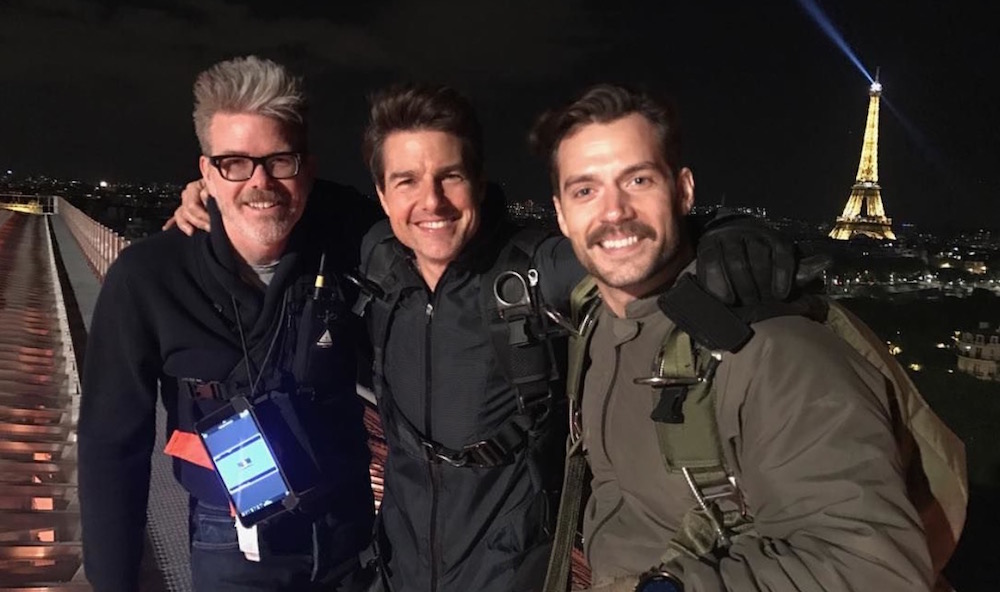
The Return of Christopher McQuarrie
The first item on a wish list for another Mission: Impossible movie is the most obvious: Christopher McQuarrie returns for one more outing as the director who watches Tom Cruise do insane things at perilous heights. It’s also a wish that has come true since this article was first published in August 2018! McQuarrie of course directed the last two Mission: Impossible films, which are arguably the best in the series: Rogue Nation and Fallout, yet previously suggested he would not be back. While speaking with Empire’s Spoiler Podcast, McQuarrie said, “It’s somebody else’s problem. Tom has asked, the studio has asked, and I was like, ‘You know, maybe I’ve got an idea for’… and then the reviews came out and I was like, ‘Get outta here. Just stop’… I’d rather have leprosy than be in the position of the person having to confront the pressure of the hyperbole of this movie on their first day of shooting the film.”
As we suspected, he must’ve realized it was a better deal in the long run than becoming a leper. Apparently taking the “long nap” he also claimed he needed before considering his next project, McQ realized there were too many pieces left on the board by his making a second Mission. So now he is taking on two more films, including Mission: Impossible 8, to potentially close the book on threads he’s weaved in since doing a rewrite of the Mission: Impossible – Ghost Protocol script.
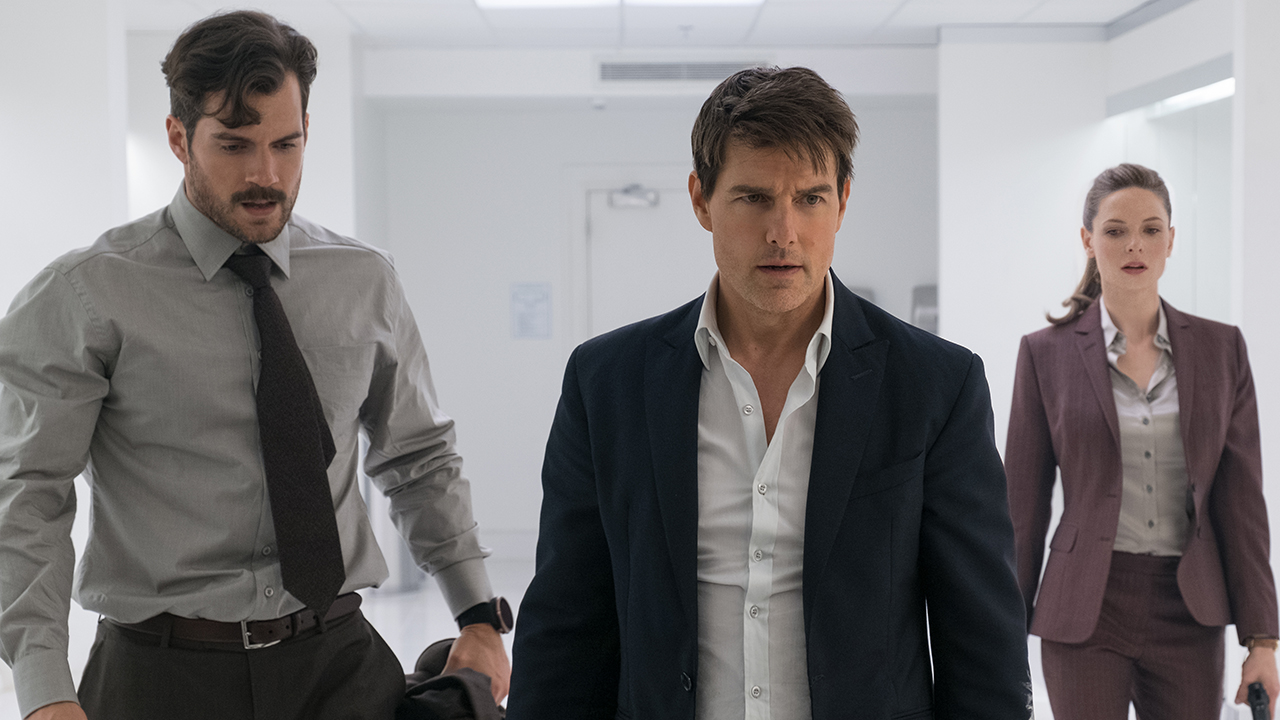
A Transition of Styles
But now that McQuarrie is coming back, we still imagine he’ll want to change things up drastically again, which we’d be all for. Rogue Nation and Fallout have almost entirely different creative teams behind them. While the writer-director stayed the same, the pictures had different cinematographers, composers, production designers, costume designers, and ultimately different sensibilities. It was part of McQuarrie’s logic that as every previous M:I movie had been helmed by a different director who brought a unique flavor to the proceedings, he would try to become a different kind of storyteller.
The results speak for themselves, as each film has a separate sensibility. Whereas Rogue Nation has an Old Hollywood classicalism to its style, complete with overt references like going to the opera and winding up in the city of Casablanca, Rogue Nation is much more modern and brutal in its “hammer”-like intensity. The first featured allusions to Alfred Hitchcock sequences of suspense, including The Man Who Knew Too Much and The 39 Steps, which was complemented by a score that echoed the operatic sensibilities of the characters. Plus Rebecca Ferguson having a vague resemblance to Ingrid Bergman led McQ to embrace that by naming her Ilsa and putting her in a town where Cruise took on the Bogie role. By contrast Fallout was less obvious in its homages, although it certainly tipped a hat to Christopher Nolan, as it also utilized dizzying IMAX photography for aerial stunts, and featured a water-logged chase with an armored car. It was still classic action moviemaking, but with a grittier more modern sheen.
It also was leaner and meaner, which the score’s more somber tone of tense soundscapes reflected, as did the way the music goes out altogether for the bathroom brawl between Ethan, Henry Cavill’s August Walker, and their mark.
read more: How Different Directors Made Their Mark on Mission: Impossible Movies
To help convince McQuarrie it is worth doing another one, and to keep audiences on their toes, this type of restructuring of behind-the-camera talent, as well as of where the writer-director looks for inspiration, could be all the difference in the world. And if Rogue Nation was an attempt to make his ultimate Mission: Impossible movie, and Fallout was an attempt to let Cruise and the locations dictate to him what the story should be, maybe a third film should be a marriage of the two? If it is a trilogy, let it be more narratively sound of plot like Rogue Nation while still letting the set-pieces “write themselves,” as McQuarrie inferred to us last year. The script for Fallout is rumored to have been only 35 pages when the film went into production. Having a more concrete narrative with the same kind of free-flowing filmmaking on the locations could make a third installment a different beast, entirely.
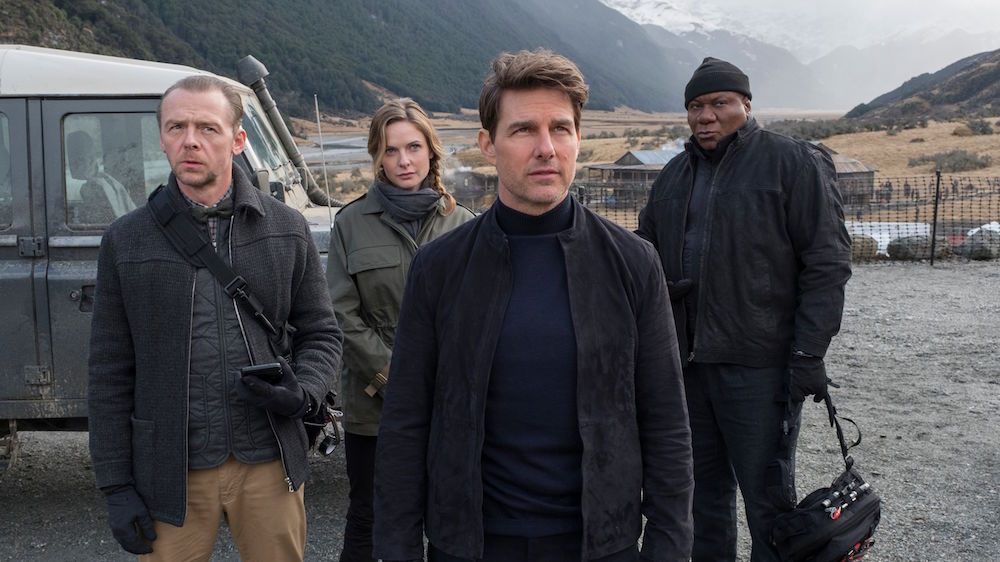
The Dream Team
With that said, some things are pretty difficult to change at this point, and that includes the definitive line-up of IMF agents at the center of things. While there have been enjoyable supporting cast members in all Mission: Impossible films, it’s become evident who Ethan’s “family” is over the years. Ving Rhames’ Luther has been a mainstay in the franchise since the original film, and J.J. Abrams did real good by bringing Simon Pegg into the franchise as Benji. What was a throwaway part in Abrams’ script became an audience darling, and after Rogue Nation and Fallout, it is as unimaginable to not include Benji as it would be to skip Luther.
read more: Mission: Impossible and the Importance of Spy Movies
McQuarrie and Rebecca Ferguson’s own creation, Ilsa Faust, has also reached that point. More than a simple love interest in Rogue Nation, Ferguson’s ambiguous MI6 agent offers a lot of possibilities that we’ll explore more of in a below section, but for the here and now, she should be an IMF agent in the next film. She’s spent two movies trying to get out from under MI6’s thumb, so let her no longer be a wild card and see where that takes her and Ethan. She was pretty much part of the team by the end of Fallout, anyway.
And while we’re on the subject, where is Jeremy Renner’s William Brandt? The slightly more political animal than Ethan was missing in Fallout because of Avengers: Infinity War (which Marvel ended up not using Renner in), but Brandt should be back in the field in Mission: Impossible 7. He was Brad Bird’s most lasting contribution to the makeshift family in Ghost Protocol, and he gives Renner a whole lot more to chew on than Hawkeye. Have the dream team on the same side from the word go in M:I7. Let it be with the villains where new elements can be introduced…
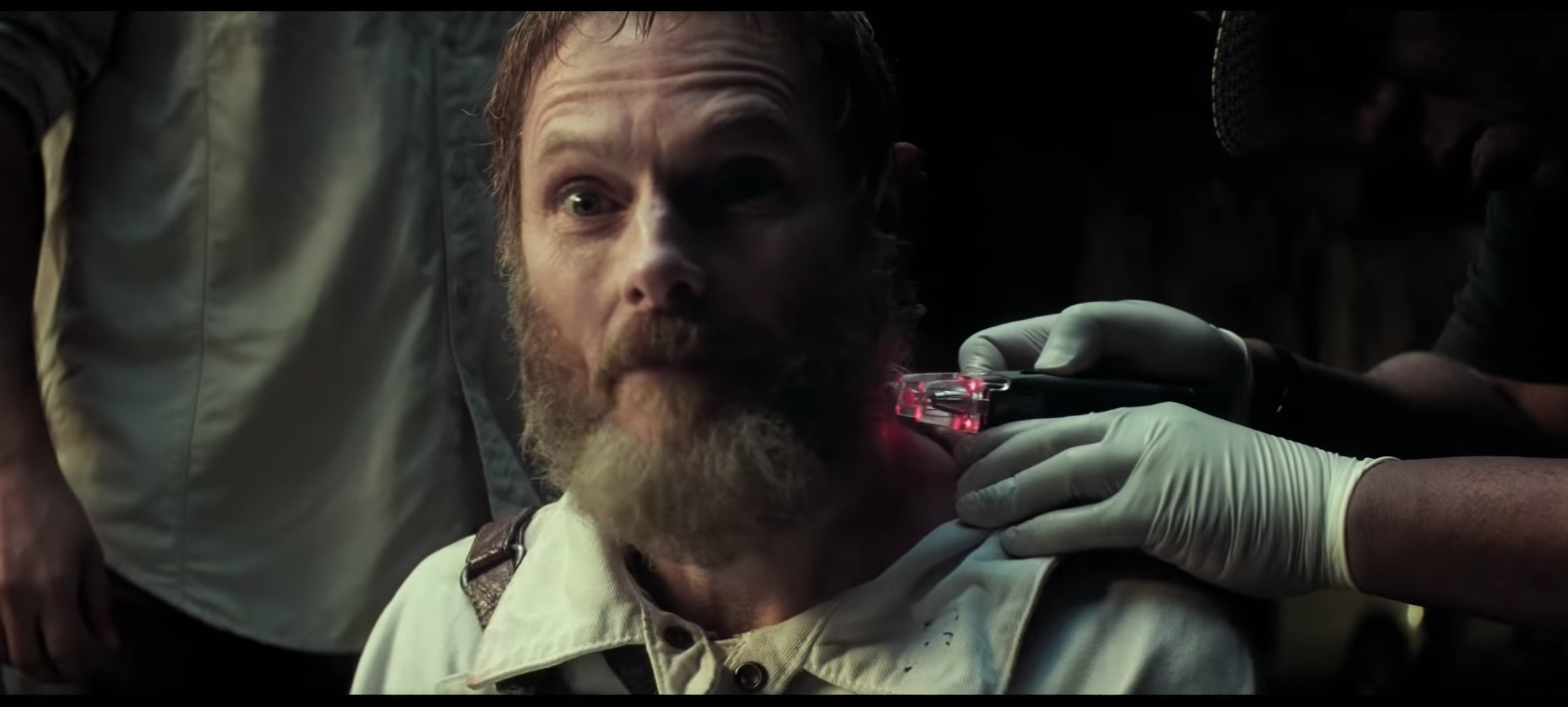
Conclude Solomon Lane, Focus on the White Widow
In that vein, one of the biggest dangling threads is Solomon Lane in Mission: Impossible 7. Despite being the main villain in two consecutive installments, complete with Ilsa having a direct order to assassinate Lane at all costs, Sean Harris’ sneering would-be Machiavelli lived to torment Ethan another day. And for good reason, unlike most villains in the series, Lane is deliciously underplayed by Harris as a mad genius who is the antithesis of Hunt. Whereas Ethan in Fallout would risk the whole world falling into nuclear chaos to save the one (Luther), Lane would destroy a whole village just to kill one person (Ethan’s ex-wife, Julia). That reversal of priorities makes them tremendous adversaries.
Their mutual disdain is a good place to build on in another film, especially as Ilsa sparing Lane was less a moral victory than one of necessity in order to save Benji’s life. There’s still unresolved hatred on both Ilsa and Ethan’s part for this big bad. With that said, he should not be the final villain again in a seventh film. Instead he could be collateral damage in the schemes of a new threat, perhaps one in the form of Vanessa Kirby’s enigmatic White Widow? The fabulously dressed femme fatale cut a snowy figure in Fallout with her few brief scenes. Her inclusion serviced fans by being revealed as the daughter of Vanessa Redgrave’s “Max” from the original Brian De Palma movie of 22 years ago, and also serviced the movie by being one of the best elements of the film, even if she was relegated to little more than a cameo.
It is revealed at the end of Fallout that the White Widow is a double agent feeding information to the CIA, however she also put plutonium in the hands of a man she assumed was a terrorist. She’s out for herself, and her schemes could make her the main threat to Ethan and the IMF going forward. The franchise has never had a woman as the villain, and Kirby has already proven to be more memorably charismatic than half the male actors who have played villains in the series. She could carry her own movie as a heavy, and would also offer a nice excuse for the CIA, and CIA Director Erica Sloan (Angela Bassett), to play a larger role in the next film.
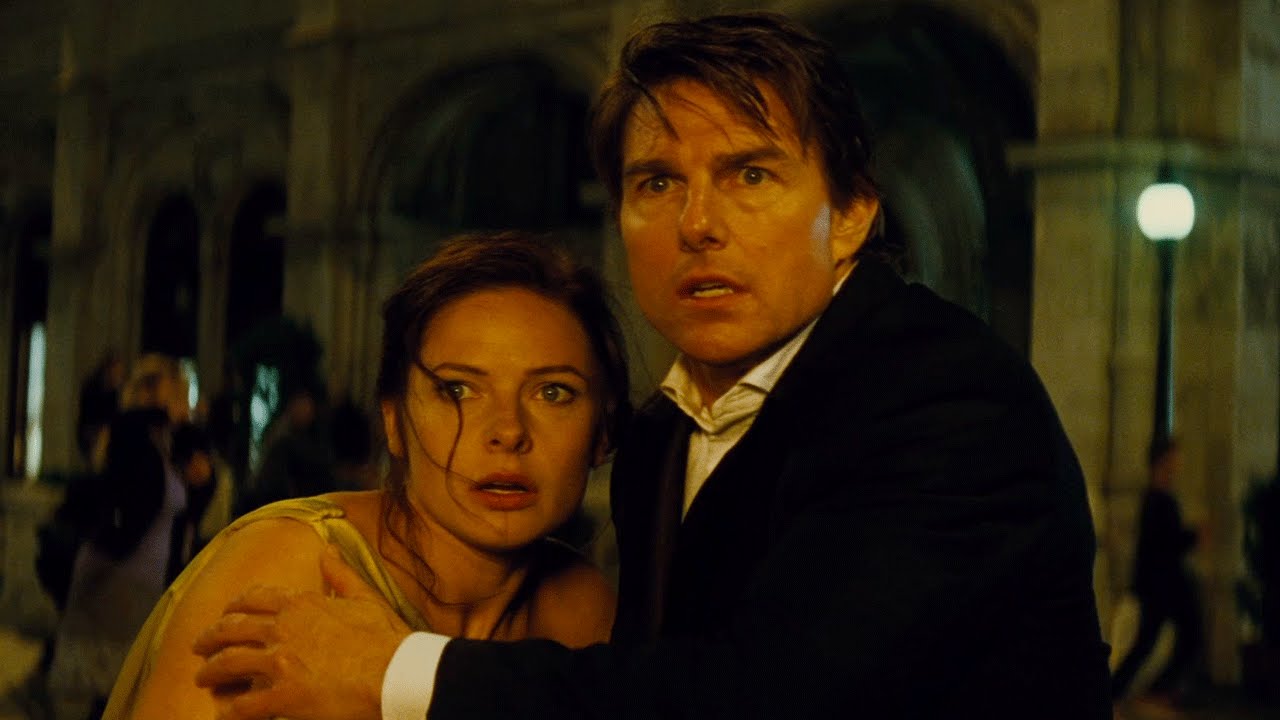
Ethan and Ilsa Start a New Chapter
An interesting thing has occurred almost seemingly by accident over the last several Mission: Impossible movies: Ethan Hunt’s been revealed to be a pretty upright guy when it comes to the women in his life. And they in turn have had the unusual chance to be treated as more than objects of lust for the male gaze, or part of the virgin/whore binary that spy stories so adore, from film noir all the way through James Bond. Rather than being a womanizer, J.J. Abrams made Ethan Hunt a would-be family man in Mission: Impossible III, one who wanted to settle down with Michelle Monaghan’s Julia. However, this created a narrative obstacle for sequels. If Ethan is happily married, how can he keep jumping out of the airplanes we pay to see him fall from?
The answer was to break his marriage up, yet rather than “fridging” Julia, she was able to live by staying on the run, divorced and potentially with her life ruined. Also by refusing to kill her off in order to make Ethan more tragic, the franchise gave McQuarrie a lot more room to play with in his two Mission: Impossible films. First Julia was able to come back and turn into an organic part of the story where she is neither dead nor living and spiteful of Ethan’s life choices negatively effecting her. Rather she is an “ordinary” woman (at least by the standards of working as a doctor without borders), who accepts Ethan and that part of her life, and helps where she can. She also has built her own life away from Ethan, finding a new husband and career that makes her happy. She is more than an accessory in his journey of self-growth.
Still, part of the reason for this refreshing change of pace in spy films is because McQuarrie felt that for Ethan to grow, he and Julia needed closure. While speaking with The Hollywood Reporter, McQuarrie said:
What people were feeling was that the relationship with Julia, whether you knew what it was or not, it was not resolved in the context of our movie. Why is he involved with this other woman in any emotional way when he has this other unresolved emotional relationship with Julia?
Ethan is not 007, and he is not the noir hero who gets around. He is still hung up on the “normal” woman he had to let get away to do his job, yet he might have found a kindred spirit in Ilsa Faust. Similarly, because Ethan intrinsically never got over Julia on screen, Ferguson’s Ilsa was introduced in Rogue Nation as not a love interest, but a strong and capable riddle of a woman with her own ambitions, goals, and choices. There is the possibility of a romance, but it is, well, impossible in that film. And as it turns out, it wasn’t possible in Fallout either, because McQuarrie felt he needed to close the door on Julia. He even cut a scene where Ilsa and Ethan kiss, because Ethan wasn’t “ready” for that until the end of the film… and when he was, the film had already ended.
In Mission: Impossible 7, this relatively mature (by popcorn movie standards) sense of relationships can be further explored. In Ilsa, Ethan might find a woman who, unlike his ex-wife, can share his life of espionage and impossible mission force-ing, and who he doesn’t have to hide from. With Ethan, Ilsa presents something we haven’t seen in spy thrillers or even many blockbuster franchises: a well-adjusted significant other who’s relationship doesn’t end with a kiss in the final frame and the implicit promise she’ll be replaced in the next one. It’s an actual relationship worth exploring. Which might just be the one thing that truly lures McQuarrie back.
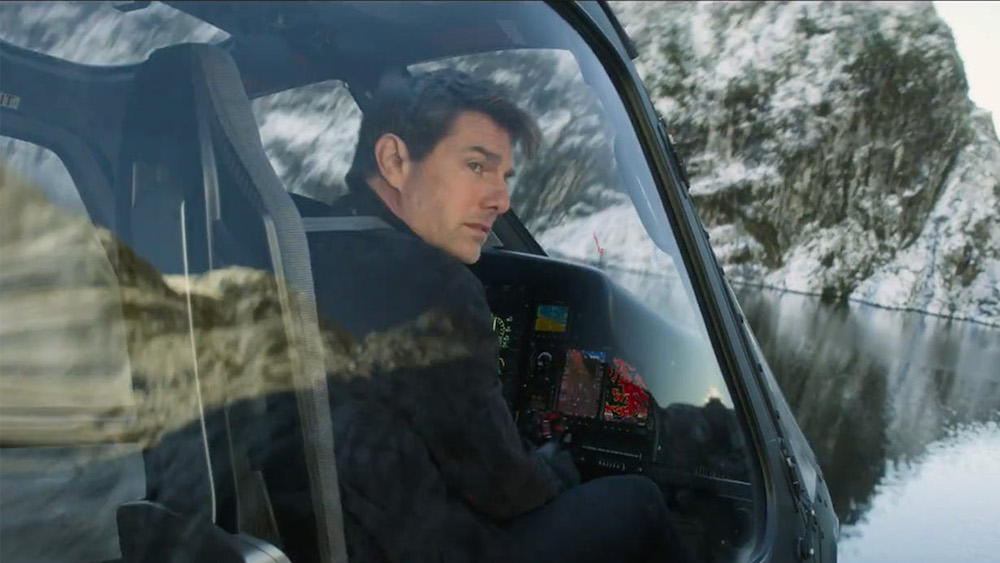
Keep It In-Camera, Of Course
Lastly, we wouldn’t dare tell Cruise, McQuarrie, or any of their stunt team what derring-do they should do in the next one… but we’re happy to give the thumbs up to keep it in-camera as much as possible!
One of the reasons folks want McQuarrie to come back in general is he has a masterful sense of composition and staging when it comes to action sequences, always able to place the camera in a way that geographically keeps audiences engaged and riveted, as opposed to the fast-cutting, shaky camera nonsense of so many of his peers. But the reason the franchise as a whole is loved is Cruise’s almost demented dedication to push his body to the limit each and every time he is up to bat. He has apparently been talking about the HALO jump for years, and began taking helicopter lessons with the express purpose of working it into Mission: Impossible 6. He’s presumably already planning such stunts again, and in a world of gray CGI sludge, that perseverance is more than admirable—it’s a relief.
So Tom, keep doing what you’re doing, and please don’t break anything this time. If we could give a few mild suggestions, we haven’t seen a Mission: Impossible movie do something in America in a while, and there might be some crazy stunts in New York or D.C. worth exploring. Also, even though The Mummy somewhat touched on this, a zero gravity sequence in a plane with the whole IMF team might be high quality entertainment.
Whatever happens, we’re sure it will look glorious when Mission: Impossible chooses its next mission.
David Crow is the Film Section Editor at Den of Geek. He’s also a member of the Online Film Critics Society. Read more of his work here. You can follow him on Twitter @DCrowsNest.
